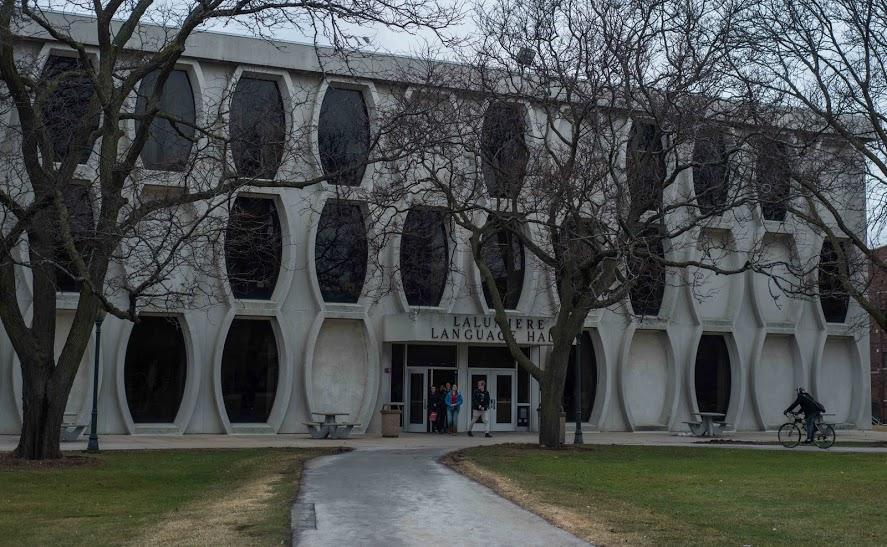U.S. News & World Reports moved Marquette up its list of National University Rankings to No. 75 from No. 83 this year. While mixed opinions have arisen regarding the importance of the rankings, Marquette’s administration has made rising in the rankings a goal.
The university’s strategic plan calls for the university to enter the top quarter of U.S. News’ rankings, which also ranked Marquette No. 49 in its list of “Best Value Schools” and No. 14 on its list of “Up and Coming Schools.”
“I think it is exciting to be recognized as one of the top 100 universities,” said Andrew Brodzeller, associate director of university marketing and communications. “It is the highest ranking we have been awarded and was one of our goals with the strategic plan. We are looking at the data that goes into it.”
U.S. News uses seven broad categories to capture various dimensions of academic quality for each college they rank, with each category being weighted differently. The categories include undergraduate reputation, weighed at 22.5 percent; student selectivity for entering class, weighed at 12.5 percent; faculty resources for academic year, weighed at 20 percent; graduation and retention rate, weighted at 22.5 percent; financial resources, weighed at 10 percent; alumni giving, weighed at 5 percent; and graduation rate performance, 7.5 percent.
These categories are intended to allow students to compare the relative quality of institutions. Critics of the rankings, though, challenge whether the system is an accurate representation of what makes a college “the best.”
“I always tell families to pay attention to the methodology behind the rankings,” said Robert Blust, director of admissions at Marquette. “The one thing that concerns me is what they define ‘the best’ as. To me, the best is what is best for you. I don’t think the best is reflected in those rankings.”
The U.S. News rankings focus on students’ SAT and ACT scores, the selectivity of a college, and a large portion of the assessment comes from surveys completed by universities and college administration officials. Because of the categories emphasized in these rankings, some say they are concerned about exactly what colleges are doing to boost their ranks.
According to a Sept. 10 article in The Atlantic, U.S. News rankings encourage colleges and universities to “do what they can” to boost their place in rankings. Examples include spending money on things the U.S. News formula deems important or by aggressively increasing the size of the applicant pool. The Atlantic said that some colleges turn away a higher percentage of applicants to show the school is “more selective” in order to boost its standings.
The most recent college to reportedly “cheat the system” was Claremont-McKenna College last year whose senior administrator was caught sending U.S. News false SAT figures for years.
Other universities that were caught include George Washington University, which overstated the proportion of its incoming freshmen who were in the top 10 percent of its high school classes, and the law school at University of Illinois at Urbana-Champaign, which provided inaccurate admissions information to the American Bar Association and U.S. News.
Though critics continue to speculate, Blust also said that there is an upside to the rankings.
“The rankings are a great way to show how universities compare to one another,” he said. “We can see the company that we keep and compare ourselves to those universities.”
One in six college students said they consider college rankings “very important” when choosing where they attend college, according to a 2011 study by the Higher Education Research Institute at the University of California, Los Angeles.
Monica Lopez, a junior in the College of Arts & Sciences, said she used the ranking system for exactly that purpose.
“I think the rankings gave me a good idea of how colleges stood nationwide,” Lopez said. “I was able to see the other universities ranked around them and how they compared to them. I also found universities that I had never heard of that I added to my list.”
Blust said that prospective students should consult many different perspectives, including other rankings and student opinions, when finding what college is “best” for them.
Brodzeller added that there is more the university can be proud of than what was reflected in the rankings.
“There are aspect of the ranking we are interested in, like graduation rate and retention rate to name a few because it reflects our academic environment and that people graduate in a timely fashion,” Brodzeller said. “The rankings are not the one and only reflection of everything our university has done.”








